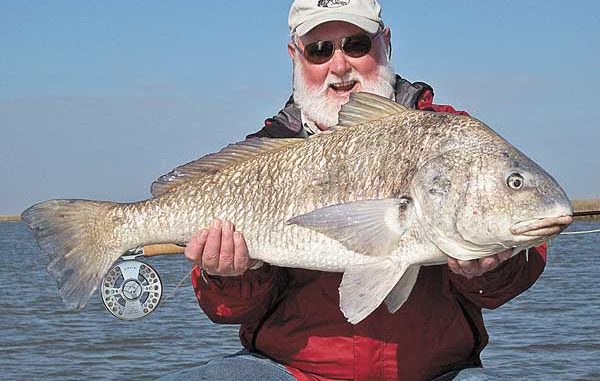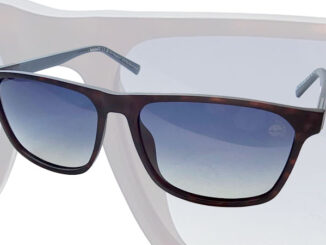
This time of year, floating saltwater baits rather than retrieving them offers practical and strategic benefits.
A guide told me of a trip he had with a customer from Pennsylvania. For the sake of this story, we’ll call the guide Joe.
Joe prefers that his clients know how to fly cast. After all, time spent teaching is less time spent pursuing fish.
The customer told Joe he attended a fly-fishing school a year before, and since, had several successful trips for rainbow trout under his belt. Joe felt that should be good enough.
Then came the day of the trip. Conditions were ripe at sunrise: foggy and calm, and tide down but not too low. Just minutes after shutting off the engine, Joe spotted Redzilla, and his BFF (Best Friend Forever) Drumzilla.
The customer had a shot at not one but two really big fish. It was a guide’s dream-come-true.
The dream turned nightmare when the customer started casting.
With each back-and-forward stroke of the cast, the customer’s body motioned like a pendulum swinging. It rocked the boat enough to create a small tsunami. On the second false cast, Joe yelled “shoot the line.” After the seventh false cast, Joe was ready to shoot the customer. Both fish were now halfway to Cuba.
Joe thought he was a decent flycaster since 1) he’d been to a school, and 2) he’d had some success on the water.
Fact is, reds from a boat are totally different from trout in a stream. In fact, trout in one stream are totally different from trout in another stream. Sooner or later, fish will teach you just how much you don’t know.
Long ago and far away, I learned how to “properly” cast at one of these fly-fishing schools. “Keep a stiff wrist,” the instructor would cry out. In order to get momentum into the strokes, I did what many novices tend to do and bore my shoulder (or in the client’s case, the whole body) into the cast.
Fortunately, my education didn’t stop there. Through Federation of Fly Fishers’ conclaves and club events, I learned from folks like Lefty Kreh, Gary Borger, Mel Krieger, Doug Swisher and Tom Jindra that there are various ways to cast efficiently.
The physics of casting demand only two things from each stroke: that the rod motion start slowly and accelerate into a hard stop, and that the tip of the rod move in as straight a line as possible. However you make that happen, it works.
One instructor gave this advice that Joe’s client could certainly use: Practice casting sitting in a lawn chair. Sitting will force you to limit the motion to your upper arm, while the chair’s armrest will prevent your elbow from “dipping down,” and in effect, result in a straighter casting line.
Casting isn’t the only aspect of our sport where expanding your horizons pays off.
The knots you use will depend on the types of fishing you do. Many beginner books aim for the trout angler, and as such, teach blood knots since they are small and form 180-degree joins.
Saltwater leaders use the bigger surgeon’s knots because they’re stronger, and marine fish aren’t knot shy. If you use fluorocarbon, you will learn that double uni-knots are best since most other knots tend to slip.
Altogether, there are about 20 different knots. Each comes into play at some point if you’re an angler who fishes many species in many waters.
With so many educational resources available today — including internet, DVDs, books — the best in terms of obtaining more immediate results continues to be personal instruction via a clinic or workshop. Certainly use those other resources, but realize their limitations.
Also, don’t limit yourself to learning from one individual or one technique. Sample as many different opportunities as you can. In our sport, education is a lifelong process. You can learn from others, or you can learn from fish. The fish are not as forgiving.
Clinics and classes
The Red Stick Fly Fishers will hold a “Fly Fishing 101” clinic on April 4 at the Waddill Outdoors Education Center in Baton Rouge. Time is 8:30 a.m.-2:30 p.m.. Sessions include casting, fly tying, knots and leaders. There is no cost, and lunch, refreshments, handouts and door prizes are provided. Registration is required, as attendance is limited. Contact Dan Weber at (225) 767-2405 or check the rsff.org website for details.
The Federation of Fly Fishers Gulf Coast Expo will be held at the Civic Center in Lake Charles on May 16-17. There are numerous workshops available, as well as programs by guest speakers such as Nick Curcione, Bob Popovics and Stu Apte. Beginner workshops are free, while those for advanced skills have a nominal fee. Check the gulfcoastfff.org website for details.
The FFF Southeastern Council will hold its annual conclave at Callaway Gardens in Pine Mountain, Ga., on May 29-30. Like the Gulf Coast event, there are numerous workshops for all levels. Check the fffsec.org website for details.
The Bass Pro Shops in Denham Springs holds a fly-tying workshop every fourth Saturday of the month from 10 a.m.-12 noon. There is no cost.
Bass Pro Shops in Bossier City conducts a free “Fly Tying for Beginners” clinic the first Thursday of each month starting at 6:30 p.m..
Cabela’s in Gonzales conducts a free “Fly Fishing 101” class the first Sunday of each month at 2 p.m. in the fishing department.
Mustad update
Recently, Mustad announced it would replace its traditional fly hooks — the defacto standard for fly recipes — with a new lineup of chemically sharpened (CS) hooks. Rumors were that the new hooks would cost 50 percent more, which has led to some panic buying of remaining stock.
I priced their traditional 98480 dry fly hook against the new CS-R50 replacement. For a box of 50, the traditional averaged $5.05 versus the CS at $5.99. Mustad contends the CS-R50 is a superior product that is not only significantly sharper, but has eight times more corrosion resistance. Compared to the Japanese-made hooks, the new Mustads are still a bargain.
What does concern me is the bright finish on the R50s. For whatever reason, trout will nail a fly that has a gold-bead head, but many will shy away from a bright hook. It might not make sense, but as Cormier’s 1st Law of Fly Fishing states, fish make the rules, humans don’t.


